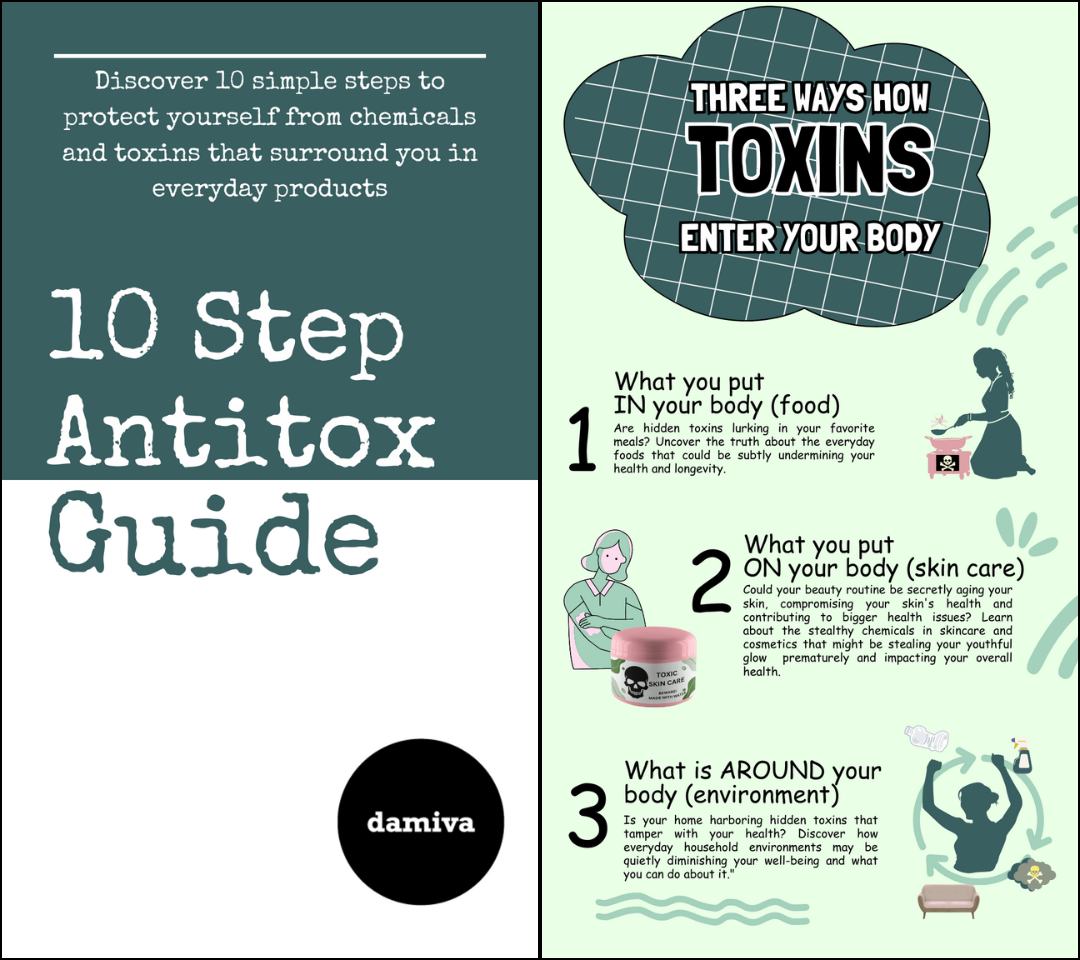Introduction to Allergies and Sensitivities in Infants
Understanding the Immune System of Babies
The immune system of infants is both fascinating and complex. It is designed to develop and adapt as babies are exposed to various substances, including foods. However, sometimes the immune system may react to certain proteins in foods that are typically harmless, leading to an allergic response. This can manifest as anything from a mild rash to severe anaphylaxis, which is a potentially life-threatening condition. Understanding how a baby’s immune system functions and responds to potential allergens is crucial for parents and caregivers in order to navigate the introduction of new foods safely.
Common Allergens and Sensitivities
While any food can potentially cause an allergic reaction, there are some common culprits that account for the majority of food allergies in infants. These include cow’s milk, eggs, peanuts, tree nuts, soy, wheat, fish, shellfish, and sesame. It is important to note that the presence of eczema or a family history of allergies can increase the risk of a baby developing food allergies. Introducing these common allergens early, typically around 4 to 6 months of age, and in a controlled manner, may help reduce the risk of developing sensitivities to these foods.
The Importance of Early Detection
Early detection of food allergies and sensitivities can be pivotal in managing a child’s health and well-being. Recognizing the signs and symptoms of an allergic reaction, which can include hives, vomiting, or respiratory distress, is essential. Introducing new foods one at a time and observing the baby for any adverse reactions can aid in identifying specific allergies. If a reaction occurs, consulting with a pediatrician or allergist is imperative for proper diagnosis and management.
Overview of Dietary Implications
Creating a safe diet for an infant with allergies or sensitivities involves careful planning and consideration. It is important to ensure that the baby receives all the necessary nutrients for growth and development while avoiding allergenic foods. Reading food labels, preparing foods at home, and being aware of cross-contamination are all key practices. Additionally, parents and caregivers should be prepared to manage allergic reactions, including knowing when to administer medications like antihistamines or, in severe cases, epinephrine.
Ultimately, the goal is to foster a diverse and nutritious diet that supports the infant’s growth and reduces the risk of developing food allergies. With the right knowledge and strategies, parents can confidently navigate this critical stage of their baby’s development.
Do you know the three main ways that your body gets in touch with harmful chemicals with everyday products? Knowledge is Power!
The Ultimate Detox Guide will tell you how to lower your exposure to harmful chemicals!

Identifying Allergies and Sensitivities
Signs and Symptoms to Watch For
Identifying allergies and sensitivities in infants is crucial as their immune and digestive systems are still developing. Common signs of a food allergy can include hives, swelling, eczema, itching or swelling of the lips, mouth, or throat, difficulty breathing, wheezing, and lowered blood pressure. These symptoms can occur within minutes to a few hours after exposure to the allergen. In contrast, food intolerances often present with symptoms such as diarrhea, tummy pain, mild skin rashes, gas, and bloating, which are generally not life-threatening and may take longer to manifest.
When to Consult a Pediatrician
If your baby exhibits any signs of an allergic reaction, it is important to consult a pediatrician. Mild symptoms like a rash or hives might be treated with antihistamines, but more severe symptoms such as vomiting, coughing, difficulty swallowing, or lethargy require immediate medical attention. Additionally, if your baby has eczema or there is a family history of allergies, it’s advisable to discuss potential allergens with your pediatrician.
Allergy Testing for Infants
Allergy testing can be an effective way to identify specific allergens. A pediatrician may recommend a skin prick test, where a small amount of the allergen is introduced to the skin, or a blood test to check for antibodies. These tests help in confirming allergies and are usually conducted after reviewing the baby’s medical history and symptoms.
Keeping a Food Diary
A food diary is an invaluable tool for tracking what your baby eats and any reactions that occur. By recording all foods and symptoms, you can help your pediatrician pinpoint potential allergens. When introducing new foods, especially common allergens, it’s recommended to follow the “three-day wait” rule—offering the same food for three days consecutively before moving on to another, to monitor for any delayed reactions.
Understanding the signs and symptoms of allergies and sensitivities, knowing when to seek medical advice, and how to properly test and track your baby’s reactions are all essential steps in crafting a safe diet for your baby. With careful observation and professional guidance, you can help ensure your baby’s well-being and nutritional health.
By the way, something for you, a little gift!!!
I am just in the middle of publishing my book. It’s about How women can balance their hormones. One part is about food and diet, of course.
Follow this link and enter your email.
I will send you this part of the book for free once the book is published. It has many concrete, practical tips and recipes and will help you feel better during menopause or times of Big hormonal fluctuations.
Annette, Damiva Lead for Health & Wellness

Creating a Safe and Balanced Diet
Essential Nutrients for Infant Development
Ensuring your baby receives all the essential nutrients is crucial for their growth and development. A balanced diet for infants should include a variety of foods that provide carbohydrates, proteins, fats, vitamins, and minerals. Breast milk or formula will be the primary source of nutrition for the first six months, but as you introduce solids, focus on iron-rich foods like pureed meats and fortified cereals, calcium for bone development, and vitamin-rich fruits and vegetables. DHA, an omega-3 fatty acid found in fish, is important for brain development, but be mindful of potential allergens when selecting fish varieties.
Alternatives to Common Allergenic Foods
When it comes to allergenic foods, it’s essential to introduce them carefully and watch for any adverse reactions. For babies with sensitivities or allergies to the “Big Nine” allergens, there are alternatives. Instead of cow’s milk, try fortified plant-based milks. For eggs, consider using mashed banana or applesauce in recipes. Nut butters can be replaced with seed butters like sunflower or pumpkin seed. Wheat alternatives include oats, rice, or gluten-free grains. Always consult with a pediatrician before introducing these alternatives to ensure they meet your baby’s nutritional needs.
Reading Food Labels with Care
Understanding food labels is vital to avoid allergens and ensure your baby’s diet is safe. Look for clear indications of common allergens, which are now required by law to be listed on packaging. Be wary of terms like “natural flavors” or “spices,” as they can sometimes hide allergens like sesame. Also, check for cross-contamination warnings, especially if your baby has a severe allergy. When in doubt, contact the manufacturer for clarification.
Homemade vs. Store-Bought Baby Foods
Deciding between homemade and store-bought baby foods is a matter of personal preference, convenience, and safety. Homemade baby food allows you to control the ingredients and avoid potential allergens. It can also be more economical and environmentally friendly. However, store-bought baby foods are convenient, often fortified with necessary nutrients, and are held to strict safety standards. If you choose store-bought options, select those with minimal ingredients and no added sugars or salts. Whichever you choose, ensure that the food is age-appropriate and texture-appropriate to prevent choking hazards.
Creating a safe and balanced diet for your baby involves careful planning and attention to detail. By focusing on essential nutrients, finding alternatives for allergenic foods, reading labels meticulously, and choosing between homemade and store-bought foods, you can craft a diet that supports your baby’s health and development while minimizing the risk of allergic reactions.
Introducing Solids and Managing Risks
The Right Age to Introduce Solid Foods
Introducing solid foods is a significant milestone in your baby’s development. The ideal time to begin solids is around 6 months of age, but not before 4 months. Signs that your baby may be ready include the ability to sit up with minimal support, good head control, and showing interest in foods you’re eating. It’s crucial to ensure that your baby is developmentally ready for this new phase to prevent choking hazards and to promote a positive feeding experience.
Step-by-Step Approach to Introducing New Foods
When introducing solids, it’s best to start with single-ingredient foods and wait three to five days before introducing another. This cautious approach allows you to monitor for any adverse reactions and identify potential allergens. Begin with iron-rich foods like pureed meats and iron-fortified cereals, followed by vegetables, fruits, and grains. Gradually increase the texture complexity as your baby’s chewing and swallowing skills develop.
Dealing with Potential Reactions
Be vigilant for any signs of allergic reactions when introducing new foods. Symptoms can range from mild, such as a rash or hives, to severe, like difficulty breathing or swelling of the face and lips. If you notice any adverse reactions, discontinue the food immediately and consult with your pediatrician. Keep a food diary to track what your baby eats and any symptoms that occur, which can be invaluable for healthcare providers in diagnosing food allergies or sensitivities.
Cross-Contamination Concerns
Cross-contamination can pose a risk for babies with food allergies or sensitivities. To minimize this risk, prepare your baby’s food separately and ensure all utensils and surfaces are thoroughly cleaned before use. Be mindful of the potential for allergens to be present in prepared foods and always read labels carefully. When introducing common allergens, do so at home where you can control the environment and have quick access to medical care if needed.
Remember, introducing solids is not only about providing nutrition but also about fostering a healthy relationship with food. Take cues from your baby and proceed at a pace that is comfortable for both of you. With careful planning and attention to detail, you can create a safe and enjoyable experience that lays the foundation for a lifetime of healthy eating habits.
Do you know the 3 main ways how your body is exposed to harmful chemicals, which affect your hormones, your thyroid, health and beauty?
If not, it may be time to learn about them. It takes about 1-2 minutes.
We have a few suggestions how to avoid these silent health and immune system killers in our new guide.

Lifestyle Considerations for Allergy Prevention
The Role of Breastfeeding
Breastfeeding has long been championed for its health benefits to infants, and its role in allergy prevention is no exception. Breast milk contains essential antibodies and nutrients that can bolster an infant’s immune system, potentially reducing the risk of allergies. Exclusive breastfeeding for the first six months is recommended, as it may provide a form of natural protection against allergens. However, if breastfeeding is not possible or if allergies are detected during this period, special hypoallergenic formulas may be advised by a healthcare professional.
Environmental Factors and Allergies
The environment in which a child is raised can significantly influence the development of allergies. Exposure to pollutants, tobacco smoke, and certain chemicals has been linked to increased allergy risks. Conversely, some studies suggest that moderate exposure to a variety of environmental microbes may actually strengthen the immune system and reduce allergy susceptibility, a concept known as the “hygiene hypothesis.” Therefore, creating a clean, but not overly sterile, environment may be beneficial for infants.
Stress, Hormones, and Infant Health
Stress and hormonal fluctuations can impact an infant’s developing immune system. Maternal stress during pregnancy and early infancy has been associated with a higher risk of allergies in children. It is important for parents to manage stress levels and seek support when needed to foster a calm and stable environment for both mother and child.
The Impact of Family Health History
Genetics play a crucial role in the likelihood of an infant developing allergies. A family history of allergies, asthma, or atopic dermatitis can increase the risk for the child. Parents should inform their pediatrician about any family history of allergies, as this information can guide early detection and preventive strategies. While genetics cannot be changed, awareness can lead to early intervention and management.
In conclusion, a combination of breastfeeding, attention to environmental factors, stress management, and consideration of family health history are all important lifestyle considerations for allergy prevention in infants. By addressing these areas, parents can help to craft a safer dietary and living environment for their babies, potentially reducing the risk of allergies and sensitivities.
Navigating Social and Emotional Challenges
Communicating with Caregivers and Schools
Ensuring the safety of a child with food allergies or sensitivities extends beyond the home and into the wider world where caregivers and schools play a significant role. Clear and consistent communication is paramount. Parents should inform all caregivers and school personnel about their child’s dietary needs and potential risks. It’s helpful to provide written instructions, including a list of allergens, symptoms of a reaction, and steps to take in an emergency. Engaging in open dialogue during parent-teacher meetings and establishing a care plan with the school nurse can also fortify this safety net.
Building a Support Network
Parenting a child with dietary restrictions can be isolating, but building a support network can alleviate some of the stress. Connecting with other parents facing similar challenges can provide emotional support and practical advice. Local support groups, online communities, and organizations like the Food Allergy Research & Education (FARE) can be invaluable resources. Sharing experiences and solutions can empower parents to handle their child’s dietary needs with confidence.
Coping with Anxiety as a Parent
It’s natural for parents to feel anxious about their child’s well-being, especially when dealing with allergies or sensitivities. To manage this anxiety, parents can educate themselves about their child’s condition, seek support from professionals, and practice self-care. Staying informed about the latest research and treatment options can provide a sense of control. Additionally, consulting with a pediatric allergist or a dietitian can ensure that the child’s diet remains safe and nutritious. Self-care practices, such as mindfulness and exercise, can help parents maintain their own well-being, enabling them to be more present and effective caregivers.
Empowering Your Child
As children grow, they can learn to manage their own allergies or sensitivities with guidance from their parents. Teaching children to recognize and avoid allergens, understand their reactions, and communicate their needs to others is crucial. Role-playing scenarios on how to refuse unsafe foods and how to seek help if they feel a reaction coming on can build their confidence. Empowering children with knowledge and self-advocacy skills will help them navigate social situations and make informed decisions about their health.
Ultimately, navigating the social and emotional challenges of raising a child with dietary restrictions is a journey that requires patience, education, and support. By fostering open communication, building a strong support network, managing parental anxiety, and empowering their child, parents can create a safe and nurturing environment that accommodates their child’s dietary needs while promoting a healthy, happy development.
Resources and Further Reading
Trusted Health and Wellness Sources
For parents navigating the complexities of allergies and sensitivities in their infants, reliable information is crucial. The FoodSafety.gov website is an excellent resource for the latest information on food recalls, which is particularly important for parents managing food allergies. Additionally, parents can sign up for free email notifications of all food recalls from the FDA and FSIS. For those concerned about the safety of USDA Foods, especially in school nutrition programs, the USDA Commodity Alert System allows for self-registration for free email notifications of recalls affecting USDA Foods.
Books and Guides on Allergies and Infant Nutrition
Books and guides can be invaluable for parents looking for comprehensive information on managing their baby’s diet. While specific titles are not provided here, parents should look for books authored by reputable pediatricians, allergists, and nutritionists. These professionals often share their expertise through detailed guides on identifying and managing food allergies and sensitivities, as well as providing nutritional advice for infants with dietary restrictions.
Support Groups and Online Communities
Support groups and online communities offer a platform for sharing experiences and advice. Free to Feed is one such resource that provides support for parents dealing with their baby’s food sensitivities. It offers educational modules, expert insights, and one-on-one consultations. Additionally, many parents find solace and practical tips in online forums and social media groups dedicated to infant allergies and sensitivities, where they can connect with others facing similar challenges.
Professional Organizations and Allergy Specialists
Professional organizations such as the American Academy of Allergy, Asthma & Immunology (AAAAI) and the American College of Allergy, Asthma & Immunology (ACAAI) are excellent starting points for finding certified allergy specialists. These organizations provide directories of healthcare professionals who can offer expert guidance and testing for infant allergies. Furthermore, they often publish educational materials and research updates that can help parents stay informed about the latest developments in allergy care.
Remember, while the internet can be a treasure trove of information, it’s essential to consult with a pediatrician or a certified allergist before making significant changes to your baby’s diet or managing potential allergic reactions. These professionals can provide personalized advice and support tailored to your baby’s specific needs.








